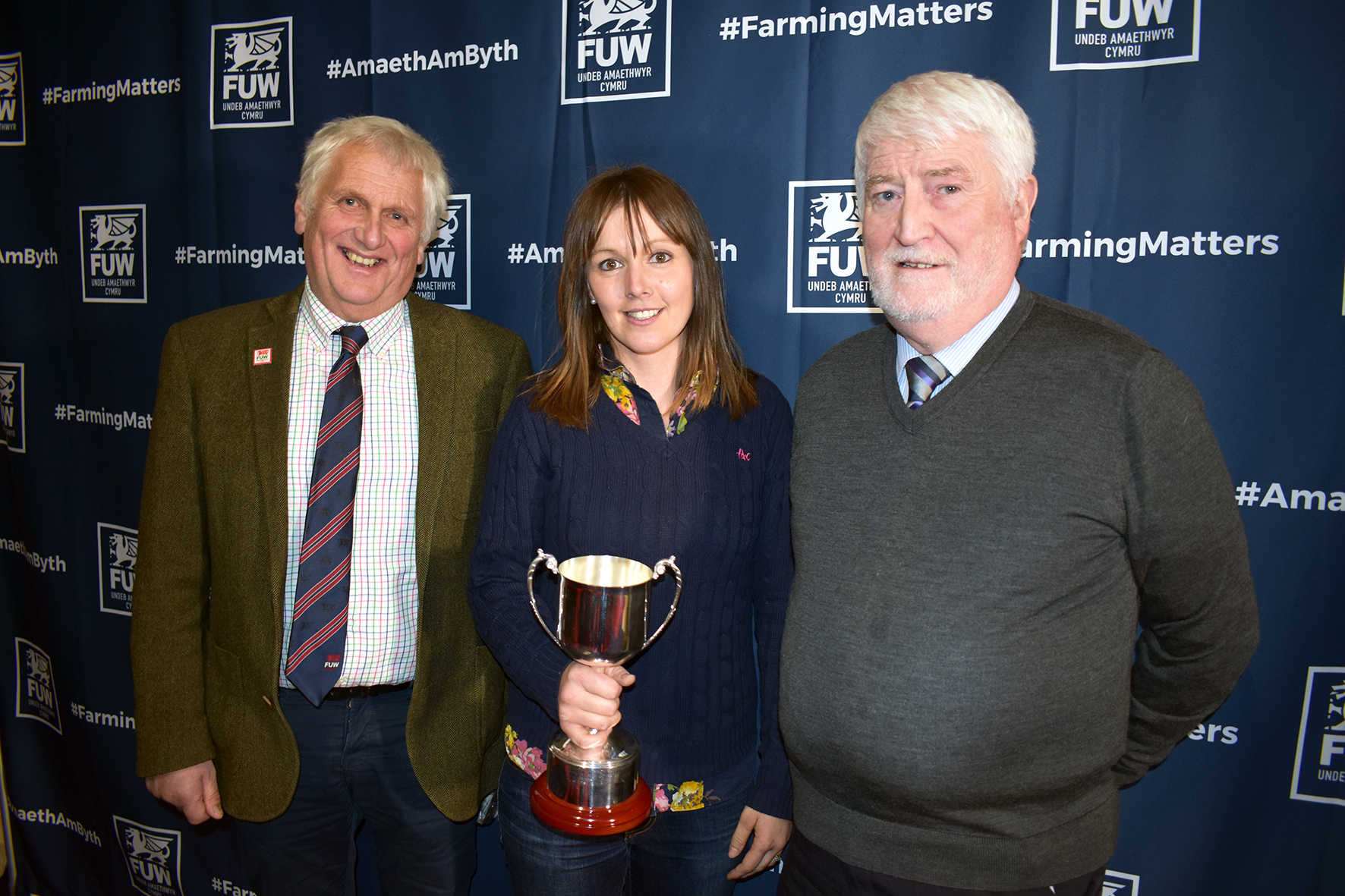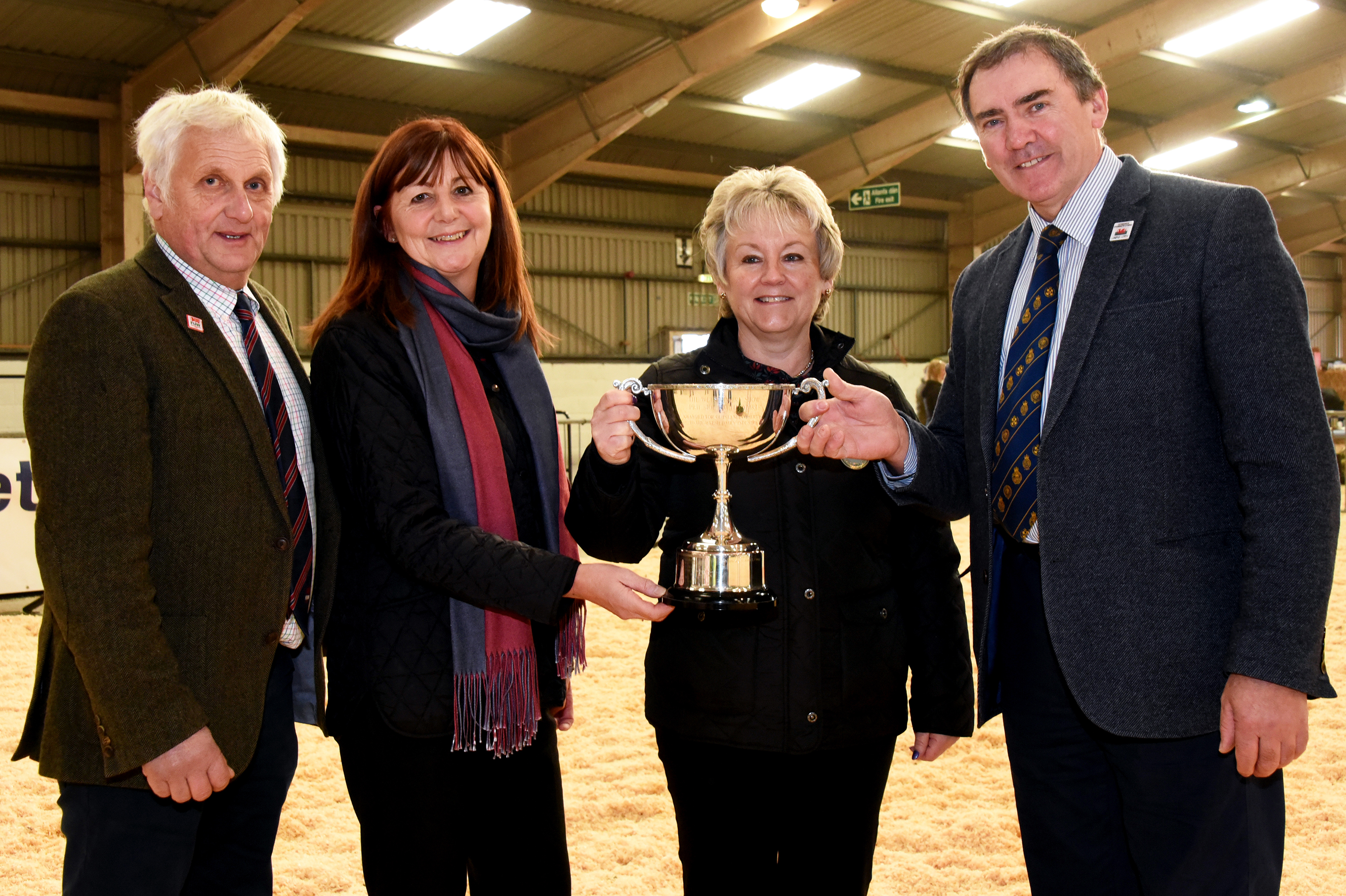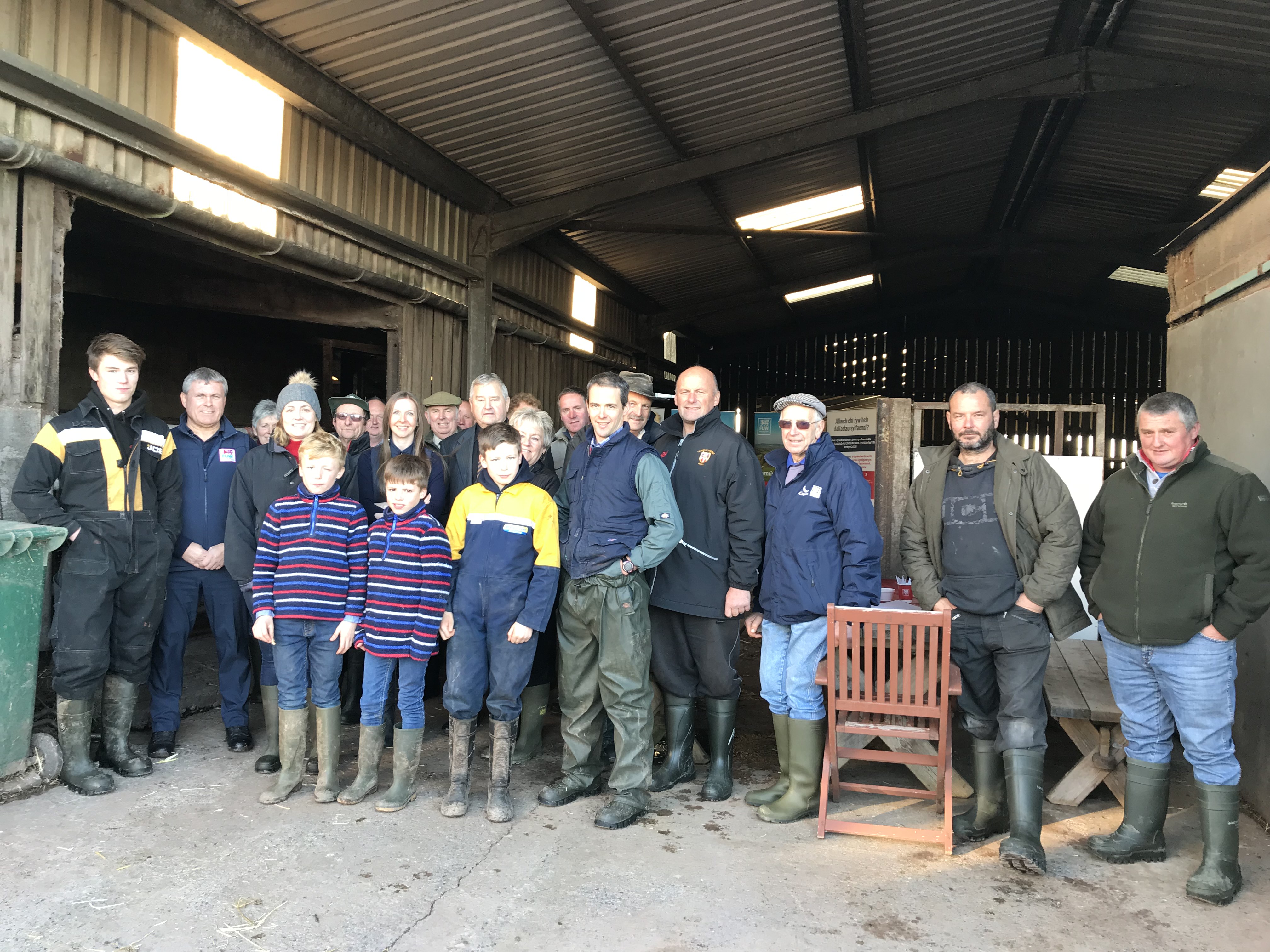 Ffermio presenter Meinir Howells has been recognised for her services to agriculture in Carmarthen with the Farmers’ Union of Wales - United Counties Agricultural and Hunters Society Award.
Ffermio presenter Meinir Howells has been recognised for her services to agriculture in Carmarthen with the Farmers’ Union of Wales - United Counties Agricultural and Hunters Society Award.

Every year the Farmers’ Union of Wales recognises an individual who has made a great contribution towards the development of the dairy industry and has become an integral part of the dairy industry in Wales.
This year, the Union is proud to honour Aled Jones, a dairy farmer from Hendy, near Caernarfon, and a Fellow of the Royal Agricultural Society, with its FUW-HSBC Outstanding Service to the Welsh Dairy Industry Award.

Diversification is not something that suits every farm business but the Edwards family of Groesasgwrn, Llangynderyn, near Carmarthen certainly know how to put the talent and skills in the family to good use.

Members of the South Wales FUW Academy, a collaboration of the Union’s Gwent, Glamorgan and Brecon and Radnor branches, recently visited Fforch Farm in the Rhondda, explored the first farm shop in the area and visited micro-brewery Cwm Rhondda Ales, to learn about different ways of diversification.
Fforch Farm is a beef and sheep farm with 40 cattle and 500 sheep and has been in the Jones family for 33 years. Lynne and Lorna Jones, who have 6 daughters and 1 son, run the farm and farm shop together with their daughters Grug, Caryl, Aneira and son Arwel.
The Wales Land Management Forum (WLMF) established a sub-group in January 2017 in order to focus on tackling agricultural pollution. The membership of the group comprises NFU Cymru, Farmers’ Union of Wales (FUW), Country Land and Business Association (CLA), Dwr Cymru Welsh Water (DCWW), the Tenant Farmers Association Cymru (TFA), Hybu Cig Cymru (HCC), AHDB Dairy, the Carmarthenshire Fishermen’s Federation (CFF), Natural Resources Wales and the Welsh Government.
In April 2018, the Cabinet Secretary for Energy, Planning and Rural Affairs was given a progress report on the work of the WLMF sub-group.
All those involved have worked collaboratively to help shape the initial recommendations that have been sent to the Cabinet Secretary and are optimistic that they will provide a framework to improve water quality in Welsh rivers in the long-term.
There is no one silver bullet to solve this problem – the solution is a combination of different changes all of which need to be supported by new ways of thinking. The main areas are:
- A robust regulatory regime
- Developing a voluntary, farmer-led approach to nutrient management
- Ensuring better advice and guidance is provided and can be taken up by farmers
- Improving the range of investment opportunities
- Identifying and promoting innovation
The WLMF sub-group continues to work at pace to deliver the recommendations in the report.
Given the vast task at hand, not least in terms of negotiations and drafting and scrutinising legislation, this is a welcome step towards the more realistic timescale and transition advocated by the FUW since June 2016. Of course, such a transition period still needs to be agreed by the EU, and the FUW maintains that the UK should remain within the Common Market and Customs Union at the end of any such transition period.



